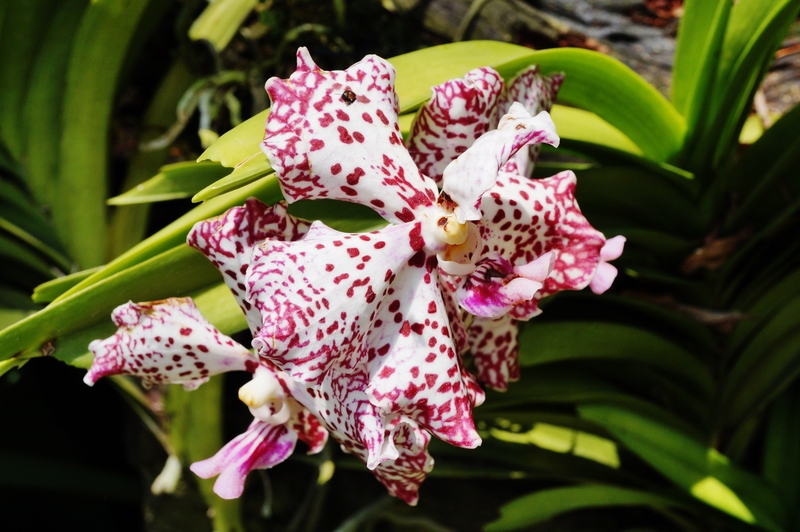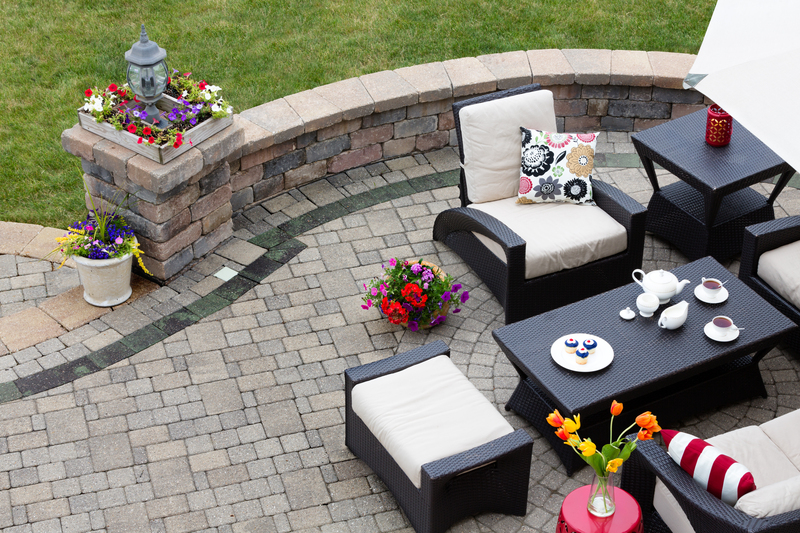Incorporating Dog Play Areas in Your Garden Design
Posted on 21/04/2024
Dogs are more than just pets, they are members of our families. We want the best for them, including a safe and enjoyable space to play in. As a dog owner, creating a designated play area in your garden can be beneficial for both you and your furry companion. However, designing a dog-friendly garden may seem like a daunting task. But fear not, with some thoughtful planning and creativity, you can incorporate a dog play area into your garden design seamlessly.
Why Have a Dog Play Area?
Having a designated play area for your dog is not only fun but also important for their physical and mental well-being. Dogs need regular exercise to burn off energy and prevent boredom. A well-designed play area provides them with the opportunity to run, jump, and chase toys, keeping them fit and healthy.
Moreover, having a dedicated space for your dog to play in prevents them from damaging other areas of your garden. Dogs love to dig, which can lead to uprooted plants and destroyed flower beds. Having an appropriate place for them to dig will redirect their destructive behavior and save your precious plants.
A dog play area can also be beneficial for training purposes. It allows you to teach your dog boundaries and reinforce good behavior. With regular training in their own designated space, dogs learn what areas are off-limits in the rest of the garden.

Designing Your Dog Play Area
When incorporating a dog play area into your garden design, there are a few key factors to consider.
Safety First
The safety of your dog should be the top priority when designing their play area. Make sure the space is fully enclosed to prevent escape attempts or unwanted visitors entering the area. Check for any hazardous plants or sharp edges that could potentially harm your furry friend.
Size Matters
The size of your overall garden will determine the size of your dog play area. However, it is recommended to have a minimum of 200 square feet for larger breeds, and 100 square feet for smaller breeds. This will provide enough space for them to run and play freely.
Surface Choice
The surface of your dog play area should be safe, durable, and easy to maintain. Grass is a popular choice as it is soft on paws and provides a natural feel. However, it can be challenging to maintain in high traffic areas. Other options include gravel or rubber mulch, which are both low maintenance and provide good drainage.
Designated Play Equipment
Adding some play equipment such as tunnels, ramps, and agility jumps can help keep your dog active and entertained. These can be as simple as repurposed household items or more elaborate store-bought structures. Be sure to choose equipment that is suitable for your dog's size and energy levels.
The Pros and Cons of Dog Play Areas in Your Garden
Pros:
- Promotes physical exercise and mental stimulation for your dog
- Reduces the risk of damage to other areas of your garden
- Provides a designated space for training and reinforcing good behavior
- Can enhance the overall design aesthetic of your garden
Cons:
- Requires regular maintenance to keep the space clean and safe
- Can take up valuable garden space if not planned properly
- May not be suitable for all gardens or living situations
Tips for Maintaining Your Dog Play Area
- Regularly check the safety of the area, removing any potential hazards.
- Keep the space clean by regularly picking up waste and debris.
- Plant non-toxic vegetation around the perimeter to prevent them from eating unwanted plants.
- Rotate toys and equipment regularly to keep your dog interested and prevent boredom.

Takeaways
A well-designed dog play area in your garden can be a great addition for both you and your furry friend. It promotes physical and mental stimulation, prevents damage to other areas of your garden, and provides a safe space for training. With careful planning and maintenance, you can create a space that both you and your dog will love.
In Conclusion
Incorporating a dog play area into your garden design is a fantastic way to ensure the safety and happiness of your furry companion. By considering factors such as safety, size, surface choice, and equipment, you can create a space that meets both yours and your dog's needs. So why not start designing your dog's dream play area today?
Latest Posts
Must-Try Planting Concepts for a Beautiful Autumn Garden
DIY Guide to Perfectly Sharpening Garden Shears at Home
Essential Techniques for Maintaining Clean and Lush Artificial Grass
Transform Your Space With Meaningful Zen Garden Plant Choices




